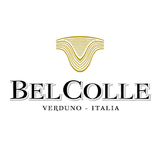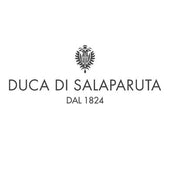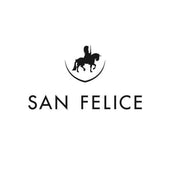Why does wine taste corked? Find out the causes and how to recognize it
Have you ever opened a bottle of wine and noticed an unpleasant smell, similar to wet cardboard or mold? If yes, the wine probably "tastes corked." But why does it happen? And what exactly does it mean?
In this article, we will explore the causes of this defect and give you helpful tips on how to recognize it and what to do if it happens to you.
What is corky taste?
The so-called "corky taste" occurs when wine is contaminated with a chemical called **TCA** (trichloroanisole). This molecule is formed when cork, the material used to cork most wine bottles, comes into contact with certain organic compounds found in the plant itself or in wineries, and reacts with fungicides or other chemicals used in industrial treatments.
The result is a unpleasant smell and taste that can completely ruin the wine tasting experience. It is important to note that the TCA is not harmful to health, but it can be highly unpleasant.
Why is cork contaminated?
Cork comes from the bark of the cork oak tree, mainly grown in regions such as Portugal and Spain. The TCA problem can occur at different stages of cork production:
- During harvesting and processing: If the bark is not treated properly, it can develop mold or come into contact with contaminants.
- Storage and transport: Cork should be stored in dry, ventilated rooms. If it is exposed to moisture and mold, the risk of contamination increases.
- Chemical reaction with products used in wineries: Contact with chlorine or other fungicides can trigger the formation of TCA.
Despite increasingly strict controls and the introduction of synthetic or screw caps for some bottles, natural cork remains the main culprit for this defect.
How to recognize a wine that tastes corked
If you suspect that wine tastes corky, there are some obvious signs you can look for:
- Smell of mold or wet cardboard: This is the most common sign. If you smell this type of odor, it is likely that the wine has been contaminated with TCA.
- Loss of aromas and flavors: Wine affected by TCA not only gives off bad odors, but also loses its aromatic complexity. Fruity or floral aromas are "squashed" or almost nonexistent.
- Flat flavor: A "corked" wine often comes across as bland and lacking liveliness. Even if the smell is not very intense, the taste may reveal contamination.
What to do if the wine tastes corked?
If you are tasting a wine at a restaurant or wine shop and notice that it tastes corked, do not hesitate to ask the sommelier or manager to replace it. Professionals in the field are familiar with the problem and usually have no difficulty changing the bottle for you.
If you are at home, the best thing to do is not to consume the wine, as the experience will be compromised. Some suggest trying to "save" the wine by using clear plastic film, which seems to be able to absorb the TCA, but the result may be uncertain.
How to prevent the corked taste problem
As for the end consumer, there are no real methods to prevent corked taste, since contamination occurs before the bottle is sealed. However, some manufacturers are adopting innovative solutions to minimize the problem:
- Synthetic or screw caps: Some wines, especially ready-to-drink wines, are bottled with synthetic or screw caps. This completely eliminates the risk of TCA, although many enthusiasts still prefer cork for more premium wines.
- Treated and controlled cork: many manufacturers adopt stricter quality control processes, subjecting cork to specific tests to eliminate the presence of TCA before corking.
Conclusion
Corked wine is a defect that can happen to even the best wines, but with greater awareness of production processes and stricter controls, it is becoming increasingly rare.
If you happen to encounter this problem, don't worry: it is a known and accepted defect in the wine world, and the advice is always the same: ask for a bottle replacement and continue to enjoy your wine experience!
If you are interested in other insights into the world of wine, keep following us on our blog to discover new tips and trivia!





























